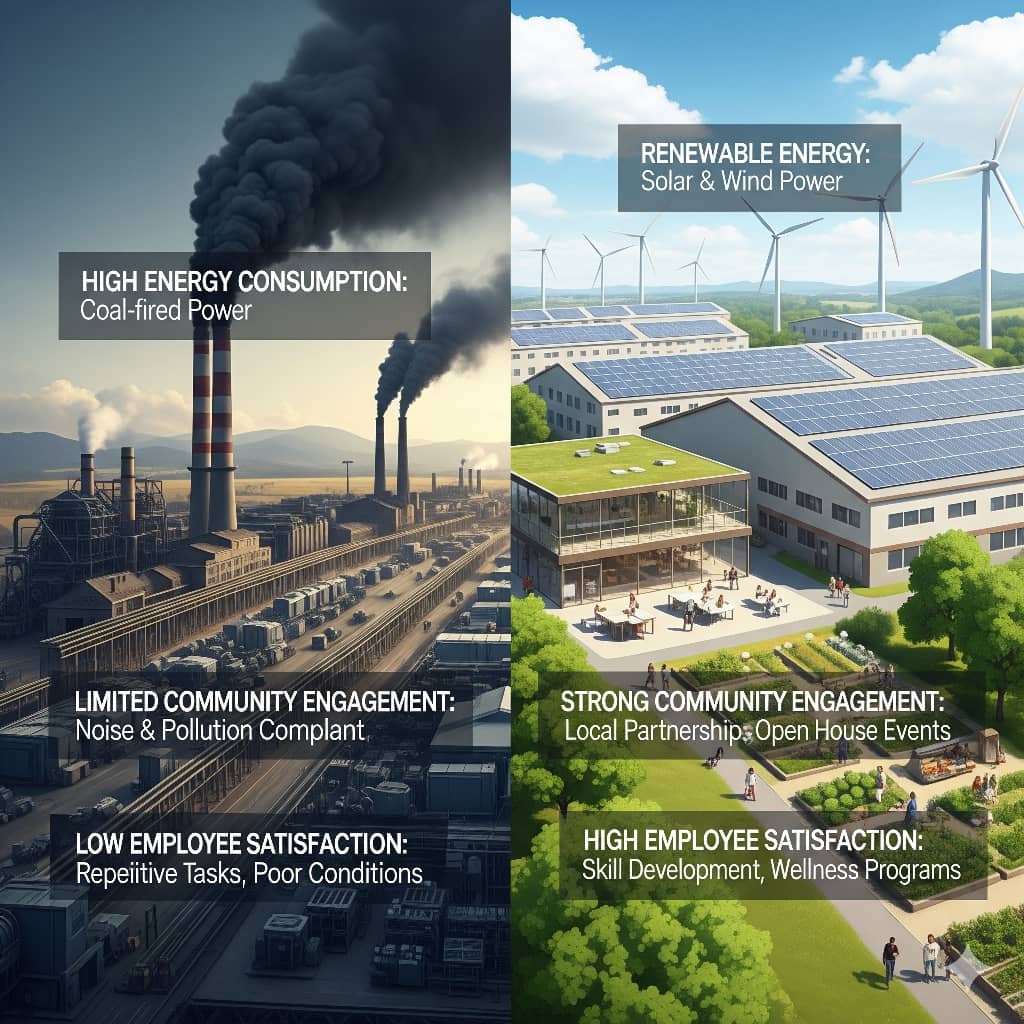Learn how to leverage your MBA training to develop, implement, and measure effective CSR strategies that create both social value and business benefits. The turning point in my understanding of corporate social responsibility came not from a case study or lecture, but from standing ankle-deep in wastewater from a textile factory. As part of our MBA program’s international consulting project, my team assessed supply chain operations in Vietnam when we encountered what our case studies had only abstractly discussed: the human and environmental costs of unchecked production. The factory manager proudly showed us efficiency metrics that would have made our operations professor smile. At the same time, outside his window, untreated chemical runoff flowed directly into rice paddies where local farmers worked. In that moment, the theoretical tension between profitability and responsibility became viscerally real, and I understood that my MBA skills could either be part of the problem or part of the solution.
Corporate social responsibility has evolved from peripheral philanthropy to core business strategy, and MBA graduates are uniquely positioned to bridge the gap between idealism and implementation. Where activists see moral imperatives and executives see financial constraints, we’re trained to identify intersections where social value and business value reinforce each other. This doesn’t mean simply calculating return on investment for charitable contributions; it means redesigning business models to create a positive impact while driving competitive advantage intrinsically.
The strategic framework we apply begins with stakeholder mapping, a skill honed in organizational behavior courses. Traditional shareholder theory focuses narrowly on investors, but effective CSR requires understanding the complete ecosystem: employees, communities, suppliers, customers, regulators, and the environment. I now use multidimensional mapping that weights stakeholders by both influence and vulnerability, identifying where the company’s operations have the most significant impacts, both positive and negative. This analysis revealed for one client that, while their charitable donations generated positive press, their payment practices to small suppliers were causing financial distress that outweighed the benefits of the philanthropy.
Supply chain management expertise becomes particularly valuable in CSR implementation. The same skills we use to optimize costs and reduce bottlenecks can identify and address ethical and environmental risks. For a consumer goods company, we applied Six Sigma methodologies to not only reduce production defects but also carbon emissions, discovering that process improvements often simultaneously benefit efficiency and sustainability. Our transportation optimization model reduced logistics costs by 18% while decreasing fuel consumption by 22%, demonstrating that environmental and financial goals aren’t just compatible, but frequently synergistic.
Financial analysis provides the rigor to move beyond CSR as public relations. We developed a weighted CSR scorecard that quantifies both tangible and intangible impacts, assigning monetary values to factors such as employee retention improvements resulting from ethical practices, brand value enhancement from sustainability certifications, and risk reduction through community engagement. This approach helped a mining company secure financing at lower rates by demonstrating how its community development programs reduced operational risks associated with social unrest, yielding a direct financial benefit from what was previously classified as charity.
Marketing training helps position CSR initiatives to resonate with increasingly conscious consumers. Rather than generic “green” claims, we use data analytics to identify which social and environmental issues matter most to specific customer segments. For an apparel client, we found that their core customers prioritized fair labor practices over organic materials. This key insight redirected their CSR investments toward ethical manufacturing certifications, which actually drove sales rather than just adding costs.
The most innovative CSR applications come from cross-disciplinary thinking. Using game theory from economics courses, we designed a supplier incentive program that rewarded environmental compliance through preferred partner status, rather than relying solely on financial penalties. Applying behavioral psychology principles, we developed employee engagement programs that made sustainability practices socially rewarding through public recognition rather than just monetarily incentivized. These approaches created lasting cultural changes rather than temporary compliance.

.
Measurement and reporting represent where MBA skills particularly excel. We adapt balanced scorecard methodologies to track CSR performance across four key dimensions: financial, operational, social, and environmental. Rather than separate sustainability reports, we integrate CSR metrics into executive dashboards and bonus calculations, making social responsibility part of core business performance rather than a side initiative. One client’s factory managers suddenly became passionate about reducing water usage when it accounted for 20% of their performance score and compensation.
The knowledge of legal and regulatory frameworks acquired through MBA programs helps prevent well-intentioned missteps. We help companies navigate complex compliance requirements across different markets while anticipating future regulations. For a food company expanding globally, we developed a nutrition labeling strategy that not only met current rules but also anticipated future sugar tax legislation, turning compliance into a competitive advantage by reformulating products ahead of competitors.
CSR also offers significant benefits in talent management. We utilize human resources analytics to quantify the impact of ethical branding on reducing recruitment costs and enhancing employee retention. Millennial and Gen Z workers particularly prioritize employers whose values align with their own, a trend we quantify through discrete choice analysis in recruitment packages. One tech company reduced engineering turnover by 40% after highlighting its clean energy initiatives and ethical sourcing practices during the recruitment process.
The ultimate validation of strategic CSR comes during crises—companies with established community relationships and ethical reputations weather scandals and disruptions far better than those without. We develop crisis simulation models that stress-test both operational and reputational resilience, identifying how CSR investments provide risk mitigation insurance. During the pandemic, companies with strong supplier relationships and robust employee support programs were able to maintain their operations. At the same time, competitors faltered, demonstrating that ethical practices can contribute to operational resilience.
Implementing CSR requires navigating internal resistance from executives who view it as a cost center rather than a value creator. We develop business cases that frame initiatives in terms of risk reduction, talent acquisition, market differentiation, and operational efficiency—speaking the language of business while advancing social goals. The most successful transformations occur when we demonstrate how CSR addresses existing business problems rather than adding new priorities.
Corporate social responsibility represents the ultimate application of integrated business thinking, where finance, operations, marketing, and strategy converge to create value that transcends financial statements. My MBA didn’t just teach me how to maximize shareholder wealth; it taught me how to redefine what wealth means in the 21st century—where sustainable value creation benefits shareholders, stakeholders, and society simultaneously. The wastewater I stood in that day in Vietnam eventually became the catalyst for developing treatment systems that benefited both the factory and the farming community, proving that the most sophisticated business solutions often solve human problems first.
References
TopMBA. (2021, March 7). MBA in Corporate Social Responsibility. https://www.topmba.com/mba-programs/specializations/corporate-social-responsability/guide
Merchant Admissions. (2023, August 30). Corporate social responsibility in MBA. https://www.merchantadmissions.com/blog/bridging-business-social-impact-corporate-social-responsibility-in-mba
Victoria University Online. (2023, June 29). Understanding corporate social responsibility (CSR). https://online.vu.edu.au/blog/what-is-corporate-social-responsibility
University of the People. (2024, October 24). Learning sustainability and CSR with an online MBA. https://www.uopeople.edu/blog/sustainability-csr-in-best-online-mba-programs/
Investopedia. (2024, March 5). Corporate social responsibility (CSR): What it is, how it works, and its importance. https://www.investopedia.com/terms/c/corp-social-responsibility.asp

